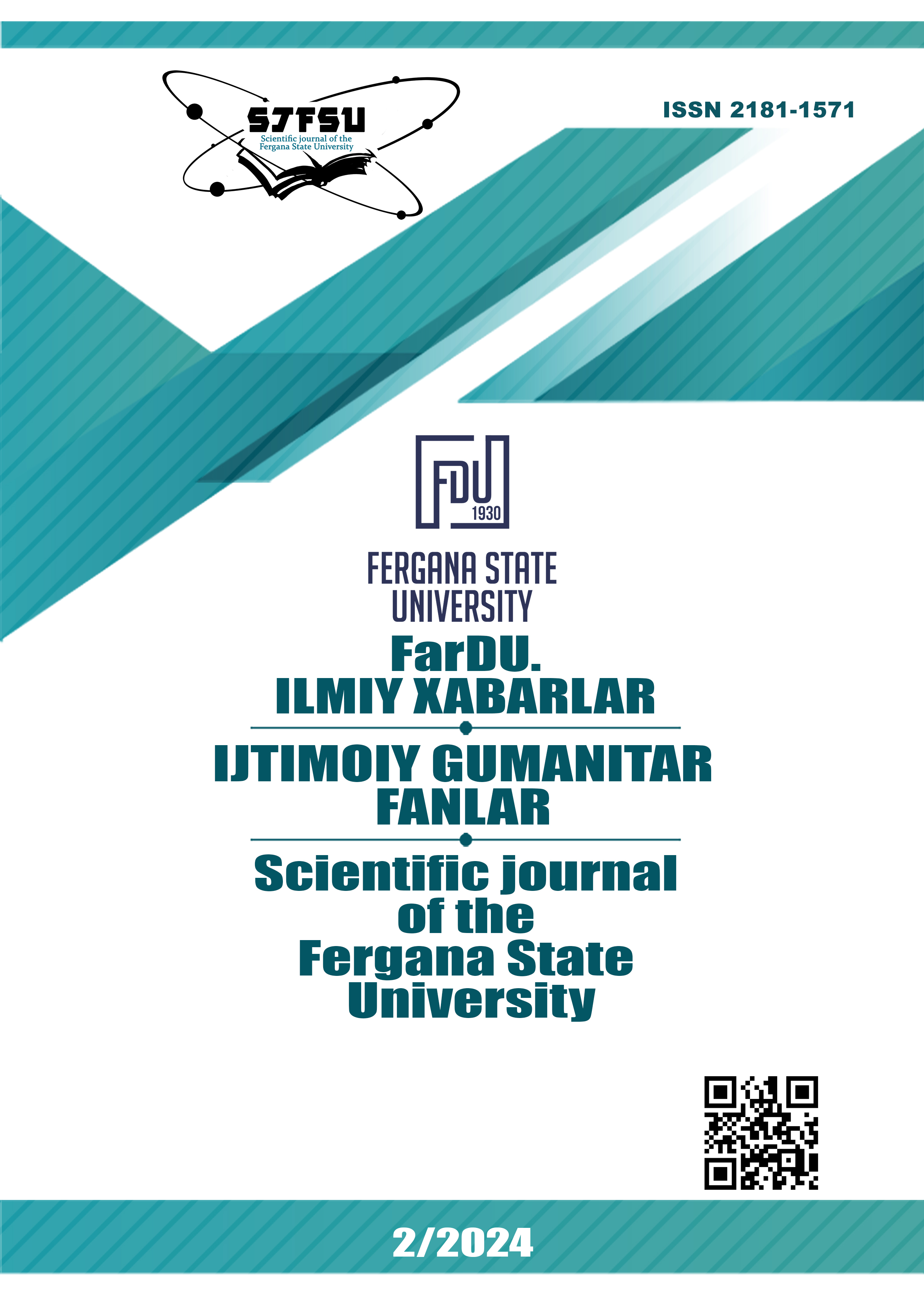SOME PARADOXES OF INCONSISTENCIES BETWEEN THE RESULTS OF TESTS OF "RESIDUAL KNOWLEDGE" OF A STUDENT AND STUDENTS AT A UNIVERSITY IN THE CONTEXT OF CHOOSING DIDACTIC GOALS OF VALUE-BASED TIME MANAGEMENT
Keywords:
Paradox, paradoxes, residual knowledge, criteria, logic model, learning achievement, evaluation module, time reserve, psychological changes, observed values, rank analysis matrix, professional readiness.Abstract
This article deals with psychological and pedagogical foundations and theoretical and methodological substantiation of existing paradoxes of imbalance between conditionally "programmed formative knowledge" and diagnosed real results and taking into account these factors when implementing didactic goals of motivational and developmental value and meaningful time management in the relationship of universities with other pre-university educational institutions. In order to clarify causal factors describing these problematics, the article provides a comparative analysis of sources and methods of achieving basic knowledge formation in the context of value and meaningful time management, given the program goals of training new formation specialists in the innovative environment of higher education institution. Herewith it is offered, that at each stage of training it is necessary to carry out prognostication and diagnostics of educational achievements of students - future specialists from the position of implementation of system regulative, considering interrelations of intellectual possibility of personality in the conditions of realization of motivating-developing technologies of time management of multivariant training in a higher school.
References
Ожегов С. И., Шведова Н.Ю. Толковый словарь русского языка: 80000 слов и фразеологических выражений / Российская академия наук. Институт русского языка им. В.В. Виноградова. – 4-е изд., дополненное. – М.: ООО «А ТЕМП», 2010. – 874 с.;
Философский словарь. Под ред. М.М. Розенталя. Изд. 3-е. М., Политиздат, 1972. – 496 с.
Слюсарева Е.С., Козловская Г. Ю. Методы психологической диагностики: учеб. пос. – Ставрополь: Изд-во СГПИ, 2009. – 443 с.
Добрякова О.И. Образовательный курс «Время в природе, истории и моей жизни» в книге: изучение личности ученика в образовательном процессе. –Москва: ГУП «Конаковская типография», 2003. – 187 с.
Золотой век в афоризмах. / Сост. Н.П. Ходюшиной, вступ. Статья Н.М. Солнцевой. – М.: Эллис Лак 2000, 2003. – 320 с.
Микрюков В.Ю. Практика самосовершенствования. Как стать выдающейся личностью и обезопасить свою жизнь. / В.Ю. Микрюков. – М.: Вече, 2011. – 256 с.
Личная эффективность / (Пер с англ. – 3-е изд. – М.: Альпина Паблишер, 2022. – 218 с.
Лестер Туроу. Будущее Капитализма. – Новосибирск 1999. – 145 с
Симонов В.П., Педагогика и психология высшей школы. Инновационный курс для подготовки магистров: учеб. пособие. – М.: Вузовский учебник, ИНФРА-М, 2015. – 320 с.
Шоул Дж. Только вперед! Пошаговое руководство по достижению успеха. – СПб.: Питер, 2014. – 176 с.
Дружинин В.Н. Психология общих способностей-СП6: Питер, 2002. – 368 с.
Современный словарь иностранных языков: толковое, словоупотребление, словообразование этимология / Л.М. Баш, А.В. Боброва и другие. Издание 5-ое, стереотип. – М.: Издатель-Трайд, 2005. – 960 с.
Сидоренко Е. Метод математической обработки в психологии.: СПб.: ООО «Речь», 2002. – 350 с.
Тайм-менеджмент / Б. Трейси «Манн, Иванов и Фербер», 2016 c.
Власть над временем / Б. Трейси; англ. Е.А. Бакушевой. – Минск: Попурри, 2021. – 336 с.
1000 главных изречений за 3000 лет / сост. А. А. Спектор, М.Д. Филиппова. – Москва: Издательство АСТ, 2018. – 208 с.
Downloads
Published
Issue
Section
License
Copyright (c) 2024 Scientific journal of the Fergana State University

This work is licensed under a Creative Commons Attribution-NonCommercial-NoDerivatives 4.0 International License.

